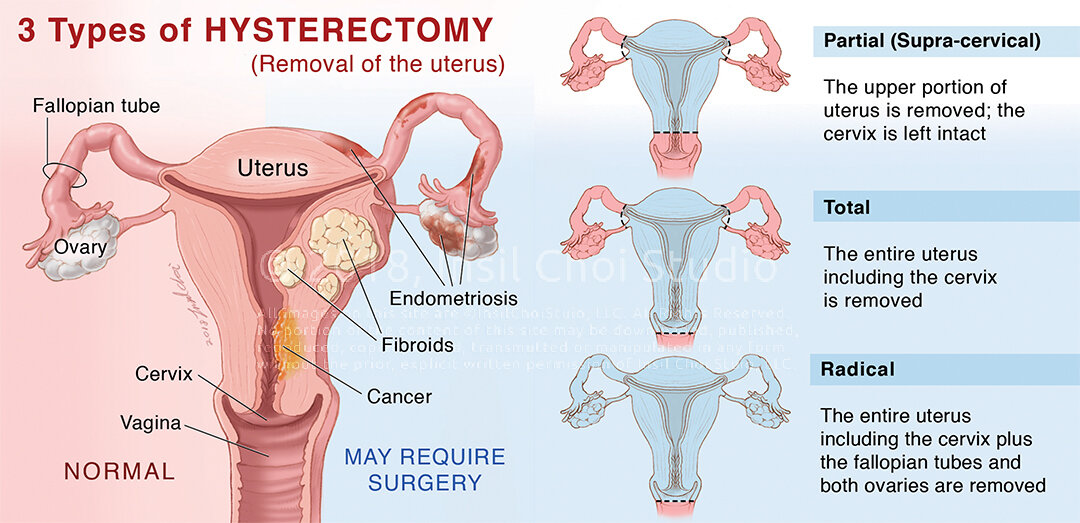Benefits of Partial Hysterectomy
Welcome to our comprehensive guide on the benefits of partial hysterectomy. In this article, we will delve into the advantages of undergoing a partial hysterectomy procedure, its potential impact on your health, and the reasons why it may be recommended by medical professionals.
Understanding Partial Hysterectomy
Partial hysterectomy is a surgical procedure that involves the removal of the uterus while leaving the cervix intact. This procedure is often recommended when certain medical conditions affect the uterus but not the cervix. By preserving the cervix, women can potentially experience additional benefits compared to a total hysterectomy.
The Benefits
Retention of Hormonal Balance
One of the key benefits of a partial hysterectomy is the retention of hormonal balance. Since the ovaries are not removed during this procedure, they continue to produce hormones such as estrogen and progesterone. This can help alleviate menopausal symptoms and maintain overall hormonal equilibrium.
Preserved Sexual Function
Preserving the cervix during a partial hysterectomy can help maintain sexual function. The cervix plays a vital role in sexual pleasure, and its preservation can contribute to a more satisfying sexual experience for some women. This aspect often makes partial hysterectomy a preferred choice for those concerned about the potential impact on their sexual well-being.
Reduced Risk of Pelvic Organ Prolapse
Partial hysterectomy can reduce the risk of pelvic organ prolapse. By leaving the cervix intact, the surrounding ligaments and tissues are better supported, reducing the likelihood of organs such as the bladder or rectum descending into the vagina. This benefit can provide long-term relief and improve overall pelvic health.
Minimized Surgical Complications
Compared to a total hysterectomy, a partial hysterectomy generally involves a less invasive surgical procedure. With a smaller incision and reduced removal of organs, the risk of surgical complications, such as infection or injury to surrounding structures, is minimized. This can result in a shorter recovery time and less post-operative discomfort.

In conclusion, a partial hysterectomy offers several benefits compared to other hysterectomy procedures. By preserving the cervix, hormonal balance, sexual function, and pelvic health can potentially be maintained. Additionally, the reduced risk of surgical complications makes it an attractive option for many women. If you are considering a partial hysterectomy, it is crucial to consult with a qualified healthcare professional to discuss your specific situation and determine the best course of action.
Frequently Asked Questions about Benefits of Partial Hysterectomy
1. What is a partial hysterectomy?
A partial hysterectomy is a surgical procedure that involves the removal of the uterus while leaving the cervix intact.
2. What are the benefits of a partial hysterectomy?
The benefits of a partial hysterectomy may include relief from heavy or painful periods, elimination of uterine fibroids, and treatment of certain gynecological conditions.
3. Will I still experience menopause after a partial hysterectomy?
Yes, if your ovaries are also removed during the surgery, you will experience menopause. However, if your ovaries are preserved, you may still go through menopause naturally, but at a later time.
4. How long is the recovery period after a partial hysterectomy?
The recovery period varies for each individual, but typically it takes around 4-6 weeks to fully recover from a partial hysterectomy.
5. Can I still have sexual intercourse after a partial hysterectomy?
Yes, you can still have sexual intercourse after a partial hysterectomy. However, it’s important to wait until your doctor gives you the green light and you feel comfortable enough to engage in sexual activity.
6. Will a partial hysterectomy affect my ability to bear children?
Yes, a partial hysterectomy will make you unable to conceive and bear children, as the uterus is removed. It is important to discuss your fertility options with your doctor before undergoing the procedure.
7. Are there any long-term risks associated with a partial hysterectomy?
While a partial hysterectomy is generally considered safe, there are some potential long-term risks such as bladder or bowel injury, pelvic organ prolapse, or vaginal cuff problems. Your doctor will discuss these risks with you before the surgery.
8. Will a partial hysterectomy affect my hormone levels?
A partial hysterectomy alone does not typically affect hormone levels. However, if your ovaries are also removed, it may result in a decline in hormone production, leading to menopausal symptoms.
9. Can a partial hysterectomy help with endometriosis?
Yes, a partial hysterectomy can help alleviate symptoms of endometriosis, especially if the condition primarily affects the uterus. However, it may not completely cure endometriosis, as the condition can also involve other pelvic organs.
10. How do I decide if a partial hysterectomy is right for me?
Deciding to undergo a partial hysterectomy is a personal choice that should be made in consultation with your doctor. They will evaluate your specific condition, discuss alternative treatments, and help you make an informed decision based on your circumstances.




